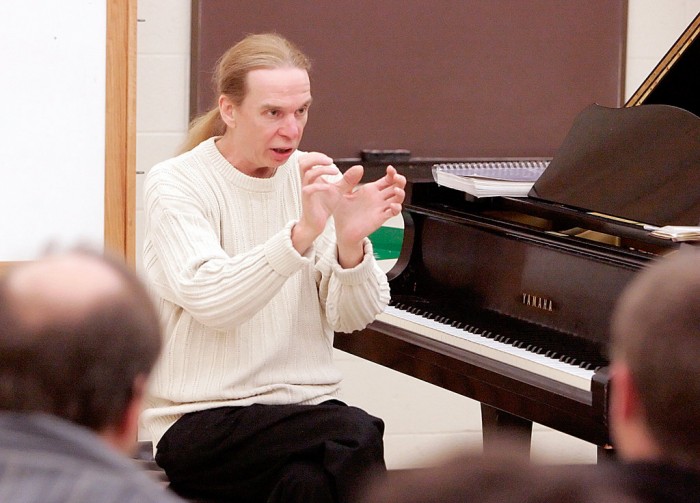For fans of pianist Lyle Mays, best known as the keyboardist and co-composer with the Pat Metheny Group, ANY sighting or musical release is an event. This isn’t just because his music is wonderful – it is because it so rarely happens! His last album
Some video just surfaced from a CalTech series early this year called TEDxCaltech where Mays appeared with a group in January. Here is a bit about the event:
What is TEDx?
In the spirit of ideas worth spreading, TED has created a program called TEDx. TEDx is a program of local, self-organized events that bring people together to share a TED-like experience. Our event is called TEDxCaltech, where x = independently organized TED event. At our TEDxCaltech event, TEDTalks video and live speakers will combine to spark deep discussion and connection in a small group. The TED Conference provides general guidance for the TEDx program, but individual TEDx events, including ours, are self-organized.
Lyle Mays has spent as much time on algorithms and software development as music in recent years, so this appearance was about the intersection of math and music, in appreciation of Richard Feynman. Here is some of his description of what was going on:
What do you get when the IT Department is the band? Jimmy Branly (drums) is a recording engineer. Andrew Pask (woodwinds) is a programmer who works for Cycling 74 (the company which makes the brilliant MAX software), Bob Rice (guitar and sounds) is a sound designer/engineer/synth programmer, Tom Warrington (bass) is a math wiz, Jon 9 (visualizations) designs, builds, and provides content for video installations, and Rich Breen could build (and nearly has built) recording studios MacGyver style. And what kind of music should one make when Stephen Hawking is in the audience at Caltech? Jazz alone doesn’t cut it.
The first notes you hear are chosen by one of my apps that mapped the calculus equations that describe the motion of the double pendulum to an accompaniment part played by synths. I wanted to use nonlinear dynamics as a starting point to illustrate the deep connections between math and music and to make a point about what we call organic. As Galileo famously observed,
“Mathematics is the language with which God has written the universe.”
The deeper we understand math and the better we apply those discoveries, the closer we get in our technology to what feels right or organic. If we use the same equations that the universe does why shouldn’t it feel less like tech and more like nature?
As for the music itself, it is a wonderfully organic event full of surprises, and apparently technical miscues based on Mays description of things. Enjoy this wonderful video and head to the JazzOnline site to see what is happening as the music plays!
Source: JazzOnline
